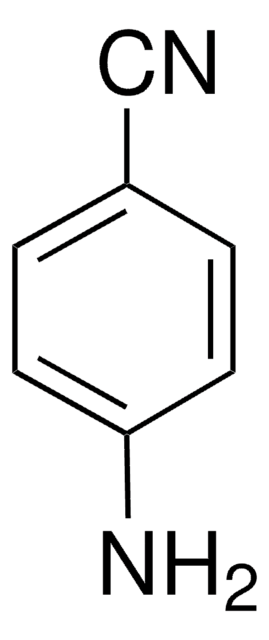857661
4-Aminobenzamidine dihydrochloride
98%
Synonyme(s) :
p-Aminobenzimidamide dihydrochloride
About This Item
Produits recommandés
Niveau de qualité
Pureté
98%
Forme
crystals
Pf
>300 °C (lit.)
Groupe fonctionnel
amine
Température de stockage
2-8°C
Chaîne SMILES
Cl[H].Cl[H].NC(=N)c1ccc(N)cc1
InChI
1S/C7H9N3.2ClH/c8-6-3-1-5(2-4-6)7(9)10;;/h1-4H,8H2,(H3,9,10);2*1H
Clé InChI
GHEHNICLPWTXJC-UHFFFAOYSA-N
Vous recherchez des produits similaires ? Visite Guide de comparaison des produits
Application
- Orally active fibrinogen receptor antagonists based on benzamidines.
- Benzamidine derivatives that are selective and potent serine protease inhibitors.
- Novel pyrrolo [3,2-c] quinolines that are structural analogs of topoisomerase inhibitors such as coralyne and fagaronine.
Code de la classe de stockage
11 - Combustible Solids
Classe de danger pour l'eau (WGK)
WGK 3
Point d'éclair (°F)
Not applicable
Point d'éclair (°C)
Not applicable
Équipement de protection individuelle
dust mask type N95 (US), Eyeshields, Gloves
Faites votre choix parmi les versions les plus récentes :
Déjà en possession de ce produit ?
Retrouvez la documentation relative aux produits que vous avez récemment achetés dans la Bibliothèque de documents.
Les clients ont également consulté
Notre équipe de scientifiques dispose d'une expérience dans tous les secteurs de la recherche, notamment en sciences de la vie, science des matériaux, synthèse chimique, chromatographie, analyse et dans de nombreux autres domaines..
Contacter notre Service technique
